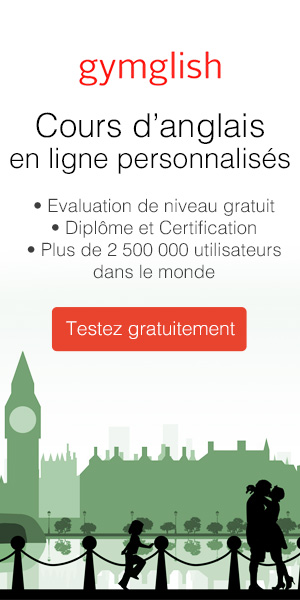Le past perfect (I had played)
Le past perfect (parfois appelé pluperfect) est utilisé lorsque l’on veut parler de deux événements passés successifs, c’est-à-dire pour parler d’une action qui s’est déroulée avant une autre action passée.
Pour la traduction en français, on peut dire que c’est l’équivalent du plus que parfait (ex: ‘Elle avait étudié…’ ‘Il était déjà parti…’ ).
GAGNEZ DU TEMPS ! TÉLÉCHARGEZ EN UN CLIC LE PACK COMPLET: 70 FICHES DE GRAMMAIRE + LES TEMPS EN PDF
PLUS D'INFOS_
1/ Formation
sujet + had (have au past simple) + participe passé (worked, been, gone…)
| Affirmative | Négative | Question | |
|---|---|---|---|
| I / you / we / they | I had played | I had not (hadn’t) played | Had I played?_ |
| he / she / it | He had played_ | He had not (hadn’t) played_ | Had he played?_ |
_
- (+) She had studied Japanese before she moved to Tokyo.
- (?) Had she studied Japanese before she moved to Tokyo?
- (-) She had not studied Japanese before she moved to Tokyo.
2/ Utilisation
* Lorsque deux actions ont eu lieu à des moments différents dans le passé
On emploie le past perfect pour parler de l’action qui se passe en premier, et le past simple (= preterit) pour la deuxième.
- The bus had already left when Tom arrived at the bus stop.
- We watched a horror movie after the kids had gone to bed.
- By the time Tina finished shopping, John had been at the bar for one hour.
- I had never eaten such a good sushi before I went to Japan.
- I did not have any money because I had lost my wallet.
- Barbara knew Sydney well because she had visited the city many times.
- Had Tom studied english before he moved to the USA?
- He was not able to get a ticket for the show because he hadn’t booked in advance.
- She checked with the post office and they still hadn’t received her package.
- I had eaten dinner before they arrived.
* Pour exprimer un passé hypothétique, avec if (pour parler de choses qui auraient pu arriver)
- If John had been able to drive a car, he would have gone home earlier.
- If I hadn’t drunk so much coffee, I would have slept last night.
* Pour exprimer le regret (avec ‘wish’ ou ‘If only’)
- If only I had invited her to the cinema.
- If I had known, I wouldn’t have come.
- I wish he hadn’t failed his driving exam.
- He wishes he hadn’t bought that car.
- She wishes she had stayed in Miami longer.
- I wish I had done scuba diving when I went to Indonesia.
* Pour le discours indirect, quand on veut raconter ce que quelqu’un a dit, pensé ou cru (souvent avec les verbes said, told, thought, explained, asked, wondered, believed…)
- ‘I have seen… ‘ => He said he had seen…
- ‘I lost my wallet’ => She said she had lost her wallet.
- She told us that the bus had left.
- I thought we had already decided to go to Paris this summer.
- He explained that he had locked the window because of the thieves.
- I wondered if she had seen this movie before.
- I asked him why he had bought this house.
- They told me they had already paid the bill.
3/ Notes
⚠️ Past perfect + just
On utilise le past perfect avec ‘just‘ pour dire que quelque chose vient juste d’arriver récemment:
- The train had just left when we arrived at the station.
- She had just left the room when she heard a noise.
- He had just washed the car when it started to rain.
⚠️ Avec ‘when’:
- When you were born, the internet hadn’t already been created.
- When I finished high school, I hadn’t learnt to drive a car yet.
- When I went to the bar, they had already been drinking a lot.
⚠️ Avec ‘before’ / ‘after’:
Si l’action au past perfect s’est passée à un moment spécifique et que ‘before‘ ou ‘after‘ sont utilisés dans la phrase, on peut le remplacer par le past simple.
- He had visited Melbourne once in 2011 before he moved there in 2013.
- = He visited Melbourne once in 2011 before he moved there in 2013.
MAIS si le past perfect ne correspond pas à une action passée à un moment spécifique, on ne peut pas utiliser le past simple:
- He never saw a kangaroo before he moved to Australia. ❌
- He had never seen a kangaroo before he moved to Australia. ✔️
⚠️ Had + had
- We had had that car for two years before it broke down.
- I wish I had had more girlfriends when I was young.
⚠️ La voix active / passive:
- Nathan had created many websites before he started his business. (Active)
- Many websites had been created by Nathan before he started his business. (Passive)
⚠️ Quelques mots utilisés souvent avec le past perfect:
already, just, before, when, by the time, once, twice, three times…
©Anglais-rapide.fr – ne pas recopier ces leçons sur d’autres sites !


le plus que parfait est bien expliqué maintenant j’ai besoin du past participle je le confond beaucoup avec le preterit